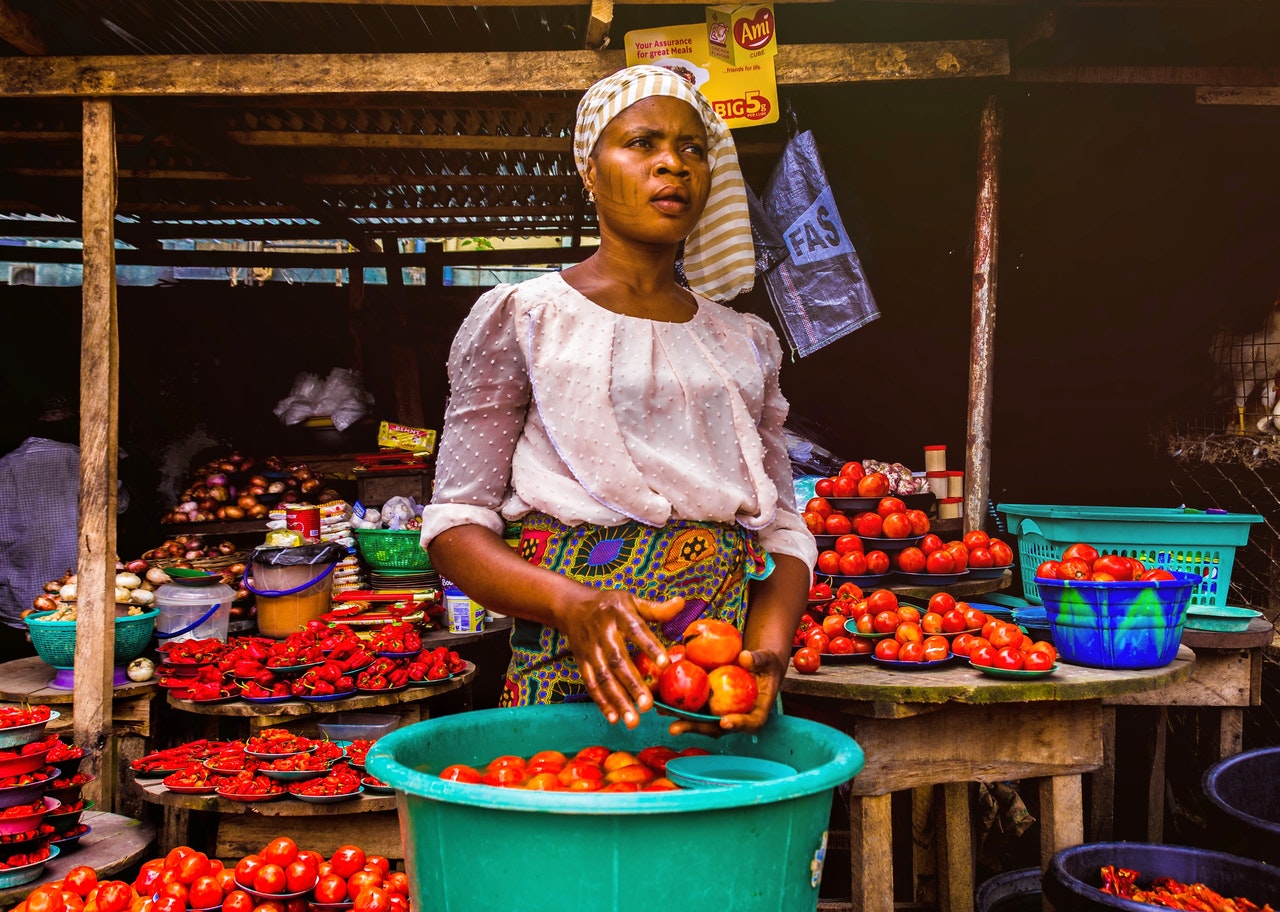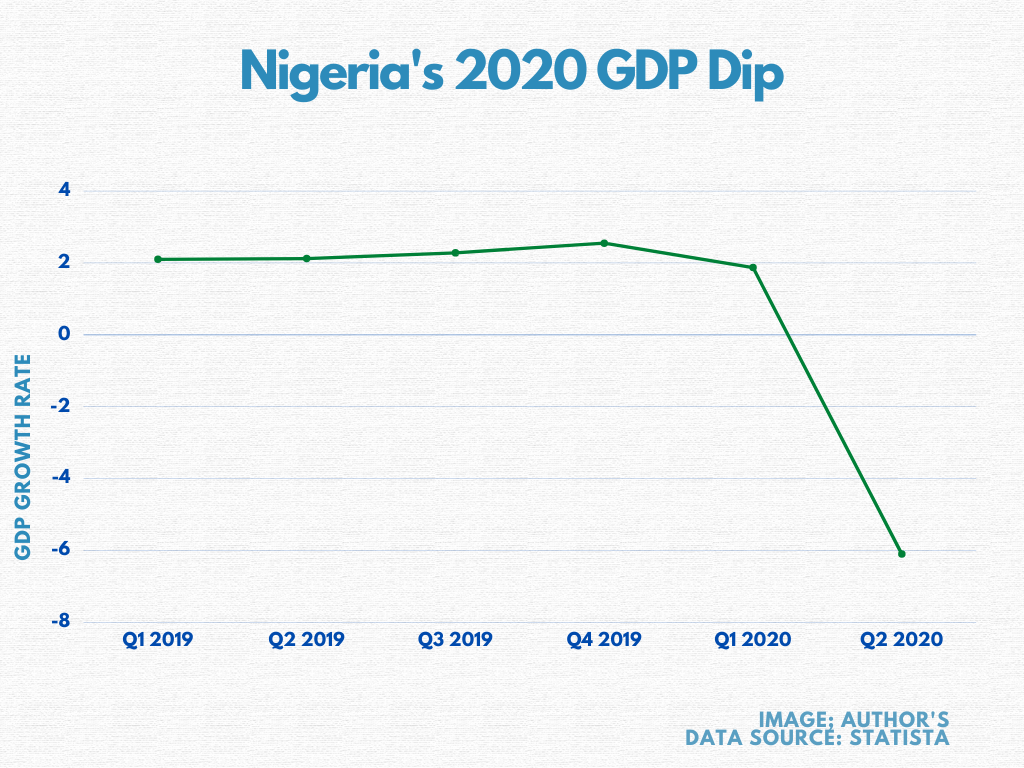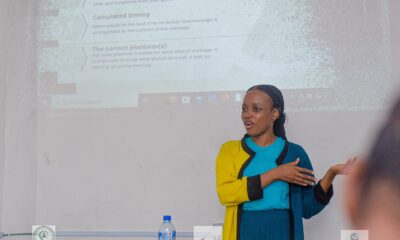Features
Adaugo Nwankpa: Real Lives, Real People – The Ripple Effect of Economic Downturns

In the wake of the COVID-19 pandemic, Africa’s largest economy, Nigeria, went into a recession, one that was heralded as its worst economic recession in four decades. According to the WorldBank, Nigeria’s real GDP contracted by 6.1 percent year-on-year in the second quarter of 2020 —the worst result in more than a decade. But the dip alone is not the problem, it is the ripple effect of the dip.
The result of this dip is where we are now, this uncomfortable place between stagflation, inflation, and recession. What do we call this new place? Stagincession? Yes, that sounds more holistic.
Funny, no? That’s the problem with economic downturns, they sound like fancy economic terms that economists, statisticians, financial analysts, development enthusiasts, businessmen, and suchlike talk about from company boards to Davos. They look like graphs with scatter plots and histograms and heat maps. They don’t look real but are and so we easily say; things are hard and continue the struggle, you know “Aluta Continua“.
But, here’s the thing about economic downturns, they are not just concepts. Whether it is a recession, inflation, stagflation, depression, and so on, they are not just concepts. The critical thing about economic downturns is what they mean for real humans around us and in our communities. This impact on people around us is what we can call “The ripple effect of economic downturns”.
Economic downturns do not just sit at the Central Bank saying “Look, I am here, your country is now officially in a downturn”. No, they move out of the central bank to the central market where a petty trader cannot afford to restock because prices have almost doubled since her last shopping, down to the school where a 6-year-old child will have to drop out to start hawking, and from hawking (s)he is exposed to crime, vices, and drugs – like that we lose our ‘leaders of tomorrow’. Then it goes down to the hospital where High Blood Pressure patients are more than malaria patients and malaria patients cannot afford a card of artemether – chaos, death, sorrow, another child orphaned, another cycle of poverty created. It replaces hearty greetings with sighs and ‘hmms’ conversations are no longer on “how was your day?” but “this country will not kill us”.
The ripple effect keeps going on and on until every sector has felt its brunt, every family has had a drink from its sour cup, and the elite and the middle class become principal victims of crime. Economic downturns give us a crash course on hardship and even if you fail to understand, you eventually will when your card declines due to “insufficient funds”.

Image shows the dip in Nigeria’s GDP – 2020
The worst of these effects is a surge in crime. Crime rates tend to increase during economic downturns and we already see this already happening – from burglary to armed robbery, to assassinations, to internet fraud, to increased drug use, and even ritual killings that are ravaging us in these times.This is caused by several reasons including low purchasing power, an inadequate number of entry-level jobs, high cost of living, and so on.
Where do we go from here?
Build The Farms
Agriculture has always been an important part of Nigeria’s economy because of its impact on national income, rural incomes, job creation, foreign exchange, provision of resources for further industrialization, among others.
A research by the FAO says that Nigeria has lost about $10 billion in export opportunities due to the underproductivity of the agricultural sector.
More so, with the population boom, we have never needed a critical tool for feeding our teeming population as we need agriculture now. Otherwise, we would have to keep depending on other countries to feed us, thereby leading to more loss of funds.
To move from wishes to actuality, the right investments must be made across all parts of the agricultural value chain. Entrepreneurs need to zoom in on the sector and fill the institutional voids that exist in it with viable solutions. Tech enabled soil checks, weather insurance, micro finance, and so on, are all voids to be filled.
We must also give priority to the security of farmers and farm owners.
Foster Partnerships and Collaborations
Expert leadership coach, John Maxwell, says that “one is too small a number to have significant results”. That is true in times like this. To accelerate business growth, impact and to thrive, partnerships and collaborations are essential to help pool together more resources, weather adverse economic storms and build resilience.
Practise Fair Pricing
“Securing the bag” is what we’re all out for, but humanity and empathy teaches us that these are times to price things fairly, so that the customer can have a bit to spare for other essentials. Fair pricing is that price that is good enough for the business to succeed with and good enough for the customer as well. This is where price regulation also comes in.
Giving Back
Philanthropy and social enterprises are crucial in these times. As school drop-out rates increase due to an inability of parents to afford fees, as people avoid hospitals due to the high cost of accessing medical care, NPOs, NGOs, social enterprises, and regular people can fill these voids through sustainable intervention projects in worst-hit areas like rural communities. Take, for instance, the Chess In Slums Africa initiative where children in slums are given a better chance at life through the game of chess. Random acts of kindness are also very useful – a meal to a family that cannot afford it, a free ride to a colleague, and so on.
Pass The Mic
Share earning and learning opportunities to people in your circle and people outside your circle. Help people upskill by teaching skills for free or for a token, become a mentor for young people, educate others on life and career skills that have helped you on your journey. That way, the youth can stay inspired and empowered.
Go International
Earning in a foreign and stronger currency is a very helpful tool for thriving in hard times and, thanks to the internet, you can now apply for jobs online.
Making a way where it looks like there is no way
As we see this ripple effect slowly building up and taking root across Nigeria, it is important that we don’t wave it off with “things are hard” or “tomorrow will be better” rhetoric, we need to fight through this with targeted and deliberate action.
Tough times build resilient and prosperous communities and we can make it out of these times as a community. But the only way out is through. Let’s do this!
***
Photo by Omotayo Tajudeen from Pexels
__
Adaugo Nwankpa is a statistician and a data & brand storyteller with an interest in economic and community development. She is a TEDx organizer and currently works as a business development associate at BellaNaija.



















